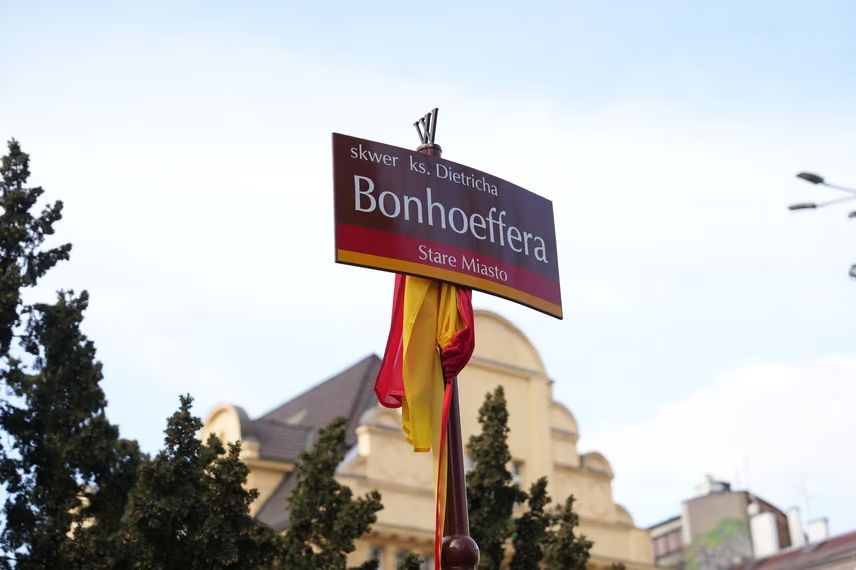Dietrich Bonhoeffer Square in Wrocław
Commemorating a Lutheran Martyr

The Wrocław City Council, together with local residents, has honored the memory of Rev. Dietrich Bonhoeffer – a Lutheran martyr of World War II and a native of Wrocław.
On Saturday, March 15 a commemoration ceremony was held at St. Christopher’s Evangelical Church in Wrocław. This year marks the 80th anniversary of Bonhoeffer’s death, which occurred on April 9, 1945.
Following a proposal by the St. Christopher’s Evangelical Parish, the Wrocław City Council resolved on June 27, 2024, to name the square in front of the church, located near Kazimierza Wielkiego and Wierzbowa Streets, after Rev. Dietrich Bonhoeffer.
During the square’s dedication ceremony, Bonhoeffer’s life and legacy were recalled in a talk by Prof. Jerzy Sojka (Christian Theological Academy in Warsaw). The program included speeches by invited guests and a concert of Passion music, featuring soprano Julieta González-Springer from Wrocław and Dr. Agnieszka Roguska from Szczecin on the organ.
A special guest at the ceremony was Prof. Juliusz Gardawski from Warsaw, grandson of the martyred Polish Lutheran bishop Rev. Juliusz Bursche, who was posthumously awarded the Order of the White Eagle. Prof. Gardawski donated one of the two last prison letters written by Bishop Bursche to the parish, as a symbol of Polish-German reconciliation. It is worth noting that the second letter was placed in 2019 in the Basilica of St. Bartholomew in Rome, which since 2000 has been a site of remembrance for Christian martyrs of the 20th and 21st centuries from various denominations.
Both World War II martyrs – Bonhoeffer and Bursche – are now symbolically depicted in stained glass windows behind the altar of St. Christopher’s Church, alongside Edith Stein and Maximilian Kolbe.
The event was organized by the St. Christopher’s Parish in Wrocław, the Wrocław City Council, and the Cultural and Art Center of the Lower Silesian Marshal’s Office.
Rev. Prof. Dietrich Bonhoeffer was born on February 4, 1906, in Wrocław, where he spent the first eleven years of his life. He was part of the anti-Nazi opposition within the so-called Confessing Church. He was executed by hanging on April 9, 1945, in the Flossenbürg concentration camp.
Based on a press release by Rev. Karol Długosz.